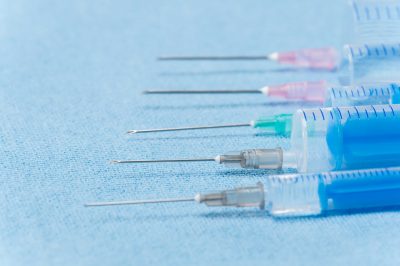Clomid for men is often prescribed as a form of treatment for low sperm count, usually caused by low levels of testosterone. In some men, low sperm count is as a result of low testosterone levels, and for others, it can be as a result of underlying health conditions.
It may seem perfectly reasonable to administer more testosterone to a man with low testosterone level, but doing so can sometimes cause his sperm count to decrease.
This is very similar to when healthcare providers prescribe birth control pills that contain estrogen to women, and these pills would prevent egg development and stop ovulation.
Instead of administering more testosterone to men with low testosterone levels, doctors prescribe Clomid, which is a drug used by even women to trigger ovulation.
In men, Clomid binds the receptors in the brain, to boost the production of the Luteinizing and Follicle-stimulating hormone.
The creation of follicle-stimulating hormone (FSH) leads to an increase in sperm production, while luteinizing hormone (LH) enhances the production of testosterone in the first stage of production.
These are hormones responsible for fertility in men, and an increase in both hormones may lead to an increase in the production of sperm and testosterone.
According to the review carried out in 2015, there have been a lot of mixed reviews concerning the effectiveness of Clomid for fertility. That being said, it’s safe to say that Clomid may work for some, while it may not work for others.
Clomid can sometimes improve the motility of sperms, strengthening its movement through the female reproductive system.
However, the government has not approved Clomid for male infertility, so there isn’t any specific agreement on the right dosage. Because of this, doctors rely on their own knowledge and experience when prescribing this drug and giving a dosage.
At What Stage Do Doctors Prescribe Clomid?
Doctors prescribe the Clomid drug after weighing the risks and benefits, and figuring out the benefits have a higher percentage; this is also same for all medication-off labels.
The FDA has approved Clomid as a treatment for women with fertility problems, but not for men. However, doctors may choose to prescribe it for men who have unexplained fertility issues, or series of unsuccessful fertility treatments.
But, doctors should ensure that they thoroughly inform patients that taking of the Clomid drug can come with some side effects, and they should understand that the effectiveness of this drug is not thoroughly tested and approved.
Possible Side Effects Associated With Clomid
These side effects don’t apply to everyone, Clomid can cause side effect in some men, and in others, it might not.
These side effects include:
 Dizziness
Dizziness- Breast growth
- Nausea with vomiting
- Headaches
- Stomach discomfort
- Vision-related problems
When taking Clomid and you notice any of these side effects, it is essential to consult your doctor for medical advice immediately. Your doctor might advise you to lower the dosage or stop taking the drug.
However, some men prefer to take Clomid because they believe it can boost their physical performance and energy level.
Also, doctors can still prescribe it as an off label therapy for people who cannot take testosterone therapy. Clomid helps to boost testosterone levels, so there is a chance that it might improve the symptoms of hypogonadism in men.
When Should Clomid be prescribed?
You should take some time to explore the success rate and potential side effects of Clomid if you are thinking about starting on it. That way, you can have an educated view of what you are about to do.
However, your doctor can prescribe Clomid in the following cases:
Low testosterone levels
If you are experiencing low testosterone levels due to hypogonadotropic hypogonadism, then your doctor may prescribe Clomid for you.
Clomid can help treat and manage the following symptoms:
- Erectile dysfunction
- Hot flashes
- Lack of concentration
- Low sex drive
- Fatigue
- A decrease in muscle mass
Non-obstructive Azoospermia
This is a condition where there is no sperm present in the semen. The term non-obstructive means nothing is causing the blockage of sperm from getting to the ejaculate.
When you have this condition, your doctor may prescribe Clomid because it can help boost the production of sperm. If this approach proves to be unsuccessful, Clomid can still increase your chances of a successful sperm extraction.
How does Clomid Work for Male Infertility?
Clomid for male infertility naturally stops the action of estrogen in the body. This action would lead to an increase in the luteinizing and follicle-stimulating hormone levels, and a high level of these hormones increases testosterone production. Higher testosterone can sometimes improve sperm count.
If your sperm count is low, your doctor may conduct blood tests to ascertain if you are qualified for Clomid treatment, as not everyone is. Usually, the test involves checking the levels of your testosterone, luteinizing and follicle-stimulating hormones.
Clomid is seen as a cheap way to improve sperm count and testosterone levels, with moderate side effects.
Some patients may experience hot flashes, blurry visions, so it’s important to alert your doctor or health care provider if you notice any strange symptoms while taking Clomid for infertility.
How Long Should a Man Take Clomid?
The treatment regime for women and men using Clomid is entirely different. Men would have to take Clomid every day, unlike women who take it for just five days at the start of their cycle, and that’s because men produce sperm every day.
The general dosage for Clomid is 25mg daily, although the FDA doesn’t verify this, numerous researches have backed up this claim.
However, taking too much of Clomid can result in excess production of testosterone. This can lead to a decrease in sperm count, hence why it’s important to reassess your hormone levels a few weeks after being placed on this drug.
If it turns out that your testosterone level is high, your doctor might suggest reducing the dosage. While on Clomid, regular checkups would be carried out by your doctor to know your response to the medication.
It takes about 90-108 days from when sperm production occurs to when ejaculation happens, so it’s easy to understand why it may take a bit of time for men to see noticeable results when using Clomid.
For this reason, it’s advisable not to abruptly quit taking this drug, until about four months if you notice no changes or improvement.
Is Clomid a Steroid?
 Every now and then, a story breaks through about athletes failing drug tests due to signs of Clomid use.
Every now and then, a story breaks through about athletes failing drug tests due to signs of Clomid use.
The famous footballer Robert Mathis of Indianapolis Colt was suspended temporarily as a result of the use of Clomid, but he reported that his aim for taking Clomid was for fertility-related problems.
This same scenario happened with other athletes, and they all claimed it was a form of treatment for infertility.
Before answering the question on whether Clomid is a steroid, let’s talk briefly about androgens (similar to testosterone). Androgens are often categorized as male hormones, although it is also produced in women, but in small amounts.
Testosterone is the primary androgen hormone, and it is responsible for the development of strength, and it also plays significant roles in sex drives, hair growth and energy levels.
With proper nutrition and adequate exercise, men who have higher testosterone levels would develop muscle mass faster.
Some athletes take certain synthetic testosterone in pill form, or natural testosterone in injection form to enhance their performance. Anabolic steroids are examples of this testosterone (synthetic).
Aside from being dangerous to your health, taking additional androgen is viewed as cheating in sports activities, which is why so many organizations prohibit the use of androgen drugs. However, some athletes go ahead to take testosterone to boost their androgen levels.
And that is precisely the work of Clomid.
Same with women, men have estrogen receptors and estrogen, but in small amounts, and the work of Clomid is to block estrogen receptors in the human body.
When Clomid blocks the estrogen receptors, the hormone-producing glands are made to believe that the estrogen level in the body is low, and it glands try to make more estrogen.
For this to work, the body enhances the production of the Follicle-stimulating hormone and luteinizing hormone.
Wondering how this is related to testosterone?
Leydig cells are the cells responsible for producing testosterone, and they produce testosterone based on the luteinizing hormones. So higher levels of luteinizing hormones mean higher testosterone levels, and this is precisely how Clomid increases testosterone levels.
In a nutshell, the athlete isn’t taking extra testosterone directly, but indirectly he is tampering with his testosterone levels.
So, in a way, it can be categorized as a steroid.
Clomid can be taken by athletes who want to improve their performance by indirectly amplifying their natural testosterone levels. Also, Clomid can be used to counteract the adverse effects of anabolic steroids.
An adverse effect common with anabolic steroids is the body’s inability to produce natural testosterone on its own, which can result in low testosterone level, and further lead to severe health complications.
Clomid can help the body kick start the production of this essential hormone.








COMMENTS